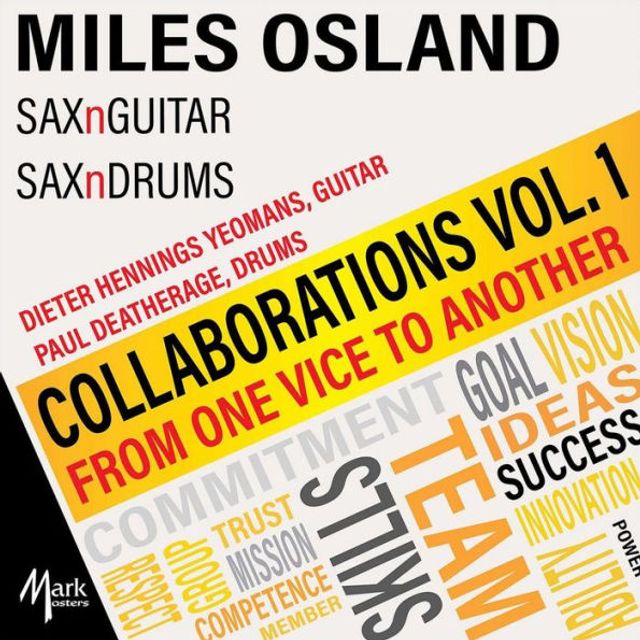Home
The Nature of Music: Original Harmony in One Voice
Loading Inventory...
Barnes and Noble
The Nature of Music: Original Harmony in One Voice
Current price: $10.99


Barnes and Noble
The Nature of Music: Original Harmony in One Voice
Current price: $10.99
Loading Inventory...
Size: OS
*Product Information may vary - to confirm product availability, pricing, and additional information please contact Barnes and Noble
The author of this work, the son of the noted musician, Karl Klauser, was one of the most profound, original and philosophical of American musical thinkers. He was born in 1854, and died in 1907. Stated as understandably as possible, his contention was that our harmonic system is really founded upon the tones embraced in the notes used in proceeding diatonically from the dominant to the seventh above (in the key of C——, G, A, B, C, D, E, F), rather than upon the tonic scale. According to his theories the harmony systems of the past are all in error. The way of the innovator is always hard, particularly an innovator with the sincerity and profundity of Julius Klauser. Whether his system is right or not, he has not, so far as our information goes, left a work which could be placed in the hands of the average student of harmony and lead to a practical knowledge of the workings of harmony and composition. Perhaps if Klauser had lived longer, he might have accomplished this. The writer of this review has taken the greatest possible interest in Klauser's writings, but he does not advise anyone but the most earnest and most advanced students to read them. To the musically uninitiated they can only bring confusion.
—Etude: The Music Magazine, Volume 28 [1910]
From CHAPTER I. INTRODUCING FIRST PRINCIPLES
1. Questions
Science has not yet fathomed the mystery of the origin and early evolutional stages of music. Our knowledge of the evolution of music is confined to the records of a few thousand years of history. Its history plainly shows that music has passed through progressive stages of evolution from simplicity to complexity. But how it began far back in the ages, the causes of its genesis, its shaping energies and forces, its essential nature, these and like questions still wait for a scientific solution. Sound emerges from and evanesces in silence. We assume that incalculable ages ago there was a time when music as yet unborn, unheard, lay dormant in silence, a mere potentiality. The evolutional study of music therefore begins with silence. All that is music is potential in and an evolution of an embryo, namely, the composite of elements upon the genesis of which depended the genesis of music. What is this composite? What are its elements? What is the principle or cause of their union? Where and how did and does this union take place? These are leading questions which confront us in this study. We investigate melody, rhythm, harmony, tonality, the tone-realm or tone-system. What are all these things? What is the origin and nature of each? Which are elements and which are composites? Which is the original and all-inclusive composite? the raison d'etre of all the others, in short, the essence of music? Theoretical predilections or subjective bias cause some of us to give the supremacy to melody, others to harmony. We still speak and write about "the intimate connection between melody and harmony," about "harmonized melody" and "melodized harmony." All this plainly implies a common belief that melody and harmony are separable. Are they, have they ever been separable or separated? If not, one of the two is an element of the other. In fact, one of the two includes, is the raison d'etre of the other. Which is it? Science has produced no final answers to these questions. Let anyone, musician or layman, consult the testimony of his unprejudiced inner feeling and experience of music and he will say with Mozart, "Melody is the essence of music." I quote Mozart because he was completely free from theoretical bias. He felt and knew this to be true, he felt and knew it instinctively just as we all do. In other words, the truth of this common testimony of common feeling has not been scientifically proved. Nor has it been disproved. Why not? Primarily because the nature of its source, that is, the nature of common music-feeling, has not been fathomed....
—Etude: The Music Magazine, Volume 28 [1910]
From CHAPTER I. INTRODUCING FIRST PRINCIPLES
1. Questions
Science has not yet fathomed the mystery of the origin and early evolutional stages of music. Our knowledge of the evolution of music is confined to the records of a few thousand years of history. Its history plainly shows that music has passed through progressive stages of evolution from simplicity to complexity. But how it began far back in the ages, the causes of its genesis, its shaping energies and forces, its essential nature, these and like questions still wait for a scientific solution. Sound emerges from and evanesces in silence. We assume that incalculable ages ago there was a time when music as yet unborn, unheard, lay dormant in silence, a mere potentiality. The evolutional study of music therefore begins with silence. All that is music is potential in and an evolution of an embryo, namely, the composite of elements upon the genesis of which depended the genesis of music. What is this composite? What are its elements? What is the principle or cause of their union? Where and how did and does this union take place? These are leading questions which confront us in this study. We investigate melody, rhythm, harmony, tonality, the tone-realm or tone-system. What are all these things? What is the origin and nature of each? Which are elements and which are composites? Which is the original and all-inclusive composite? the raison d'etre of all the others, in short, the essence of music? Theoretical predilections or subjective bias cause some of us to give the supremacy to melody, others to harmony. We still speak and write about "the intimate connection between melody and harmony," about "harmonized melody" and "melodized harmony." All this plainly implies a common belief that melody and harmony are separable. Are they, have they ever been separable or separated? If not, one of the two is an element of the other. In fact, one of the two includes, is the raison d'etre of the other. Which is it? Science has produced no final answers to these questions. Let anyone, musician or layman, consult the testimony of his unprejudiced inner feeling and experience of music and he will say with Mozart, "Melody is the essence of music." I quote Mozart because he was completely free from theoretical bias. He felt and knew this to be true, he felt and knew it instinctively just as we all do. In other words, the truth of this common testimony of common feeling has not been scientifically proved. Nor has it been disproved. Why not? Primarily because the nature of its source, that is, the nature of common music-feeling, has not been fathomed....


















